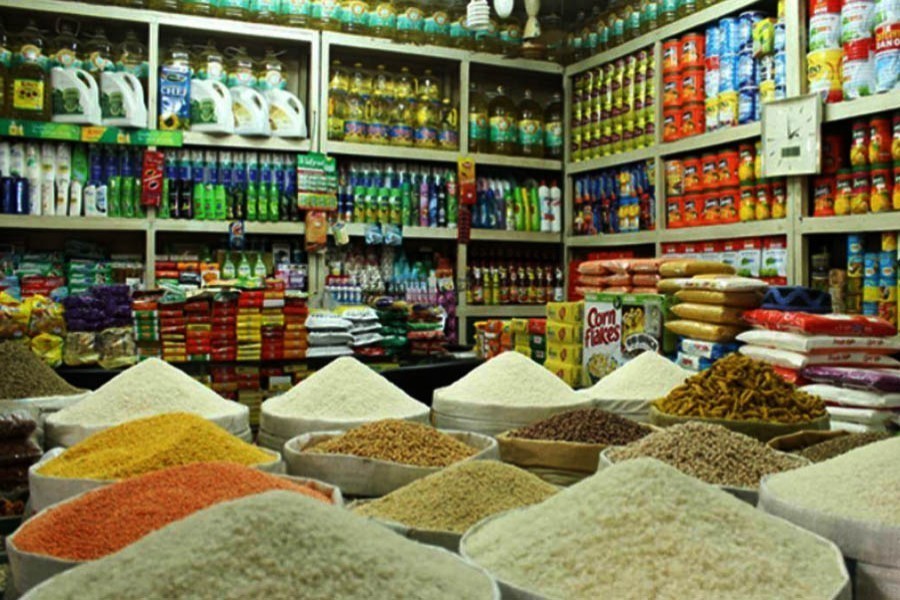Having their back to the wall as they take a relentless battering at the hands of those behind uncontrolled price hike of essential commodities, the general consumers are now looking to the government to protect them from this tyranny of the volatile market. True, the government's different market monitoring and enforcement agencies have been conducting occasional drives to bring errant traders found hoarding essential goods or raising their price irrationally to book. Often retailers in the kitchen market blame the wholesalers and importers for sudden supply crunches leading to unanticipated price hike of daily essentials. It all points to the fact that there are some powerful manipulators behind such volatility of the kitchen market.
Evidently, they are not only depriving the common consumers of a fair price for the daily essentials, they are also destroying the environment of a normal competitive market. The government needs to adopt more strategies than one to bring this unstable market under control. So, alongside using its enforcement agencies to discipline errant traders, the government would also do well to engage the wider business community to combat delinquency in business practice. At the same time, it would also be worthwhile to make the business community aware of the dangers of an unhealthy, uncompetitive market dominated by unprincipled operators. To further the government's effort along this line, the Bangladesh Competition Commission (BCC) recently organised a meeting in the city where government leaders and various stakeholders including business representatives, professionals and experts were all for promoting market-competitiveness in the greater interest of the economy.
This is undoubtedly a very welcome stance taken by the business community at this critical time. It is expected that the businesses would give the government a hand in its ongoing efforts to tame the unstable essential market. To that end, the businesses would be required to go by the principles of the Competition Act of 2012, which aims to promote, ensure and sustain a congenial atmosphere of competition in the economy. The Bangladesh Competition Commission (BCC), created under the Competition Act, should ensure that businesses are compliant with the guidelines of the Act. In the present context, an important task of the BCC will be to devise a mechanism to control the prices of the commodities in the market so that they do not go beyond the reach of the common consumers. The views of the overwhelming majority of the participants at the BCC-sponsored event in question were in favour of a stronger role to be played by it (BCC) by way of implementing an effective compliance programme for the business community.
While putting into effect its compliance measures, the BCC, or, for that matter, the government, would also be required to reform some relevant laws such as those covered by the Competition Act of 2012. This is to ensure that the laws are in line with the specific requirements of the time. Stakeholders, consumer rights bodies and experts should join hands to come up with a set of compliance measures for the purpose. The business community's most vital role, on this score, would be to extend all-out cooperation to the government in the implementation of the compliance programme. For, the action programme would involve measures like conducting investigations against delinquent business entities, filing lawsuits, taking penal measures including even harsh ones like, for instance, imprisonment. In fine, all concerned should work together to create a consumer-friendly, healthy and competitive business culture in the greater interest of the economy.


